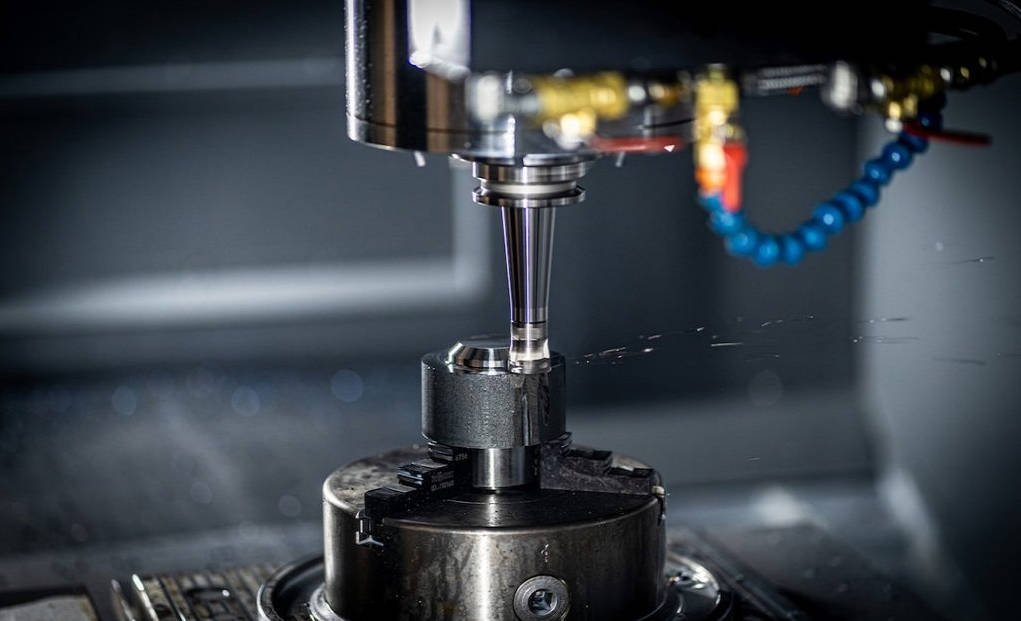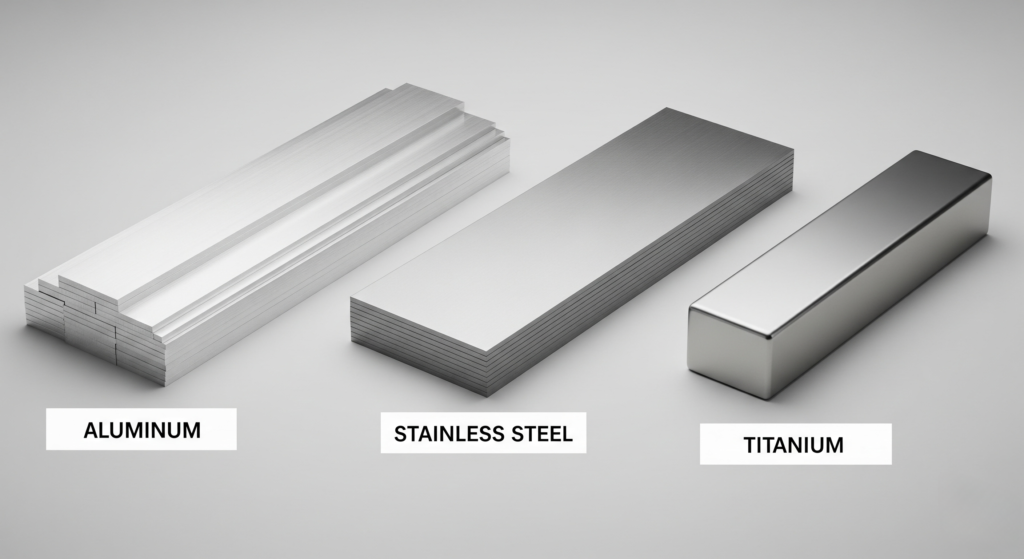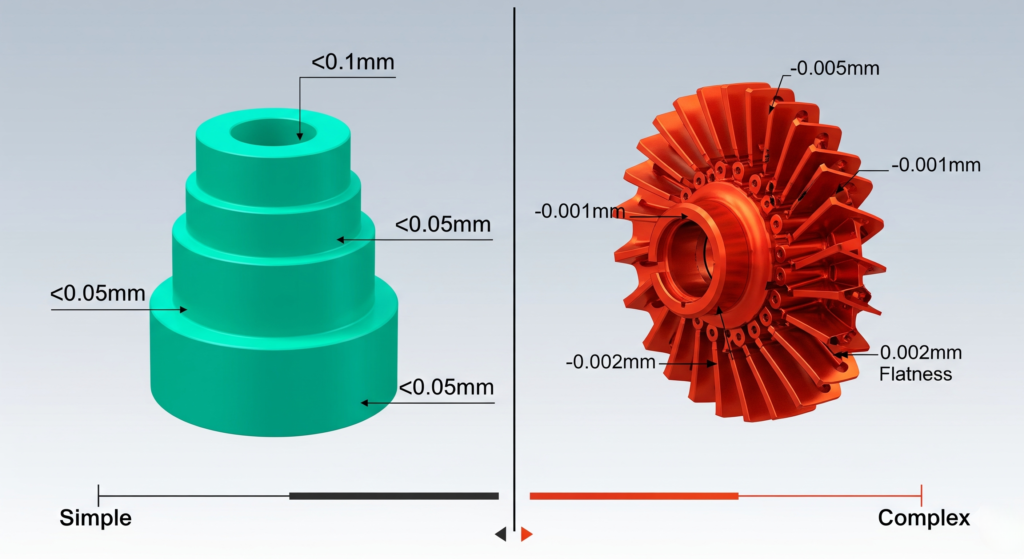Table of Contents
- Introduction
- Average CNC Machining Cost Per Hour
- Key Factors That Influence CNC Machining Hourly Rates
- Cost Breakdown Examples (Case Studies)
- How to Estimate Your CNC Machining Costs
- Tips to Reduce CNC Machining Costs
- CNC Machining vs. Other Manufacturing Costs
- Industry Applications & Cost Benchmarks
- FAQ – Common Questions About CNC Machining Costs
- Conclusion
How Much Does CNC Machining Cost Per Hour?
Introduction
Computer Numerical Control (CNC) machining is a subtractive manufacturing process that uses automated, high-precision tools to cut away material from a workpiece to create a desired shape. From simple prototypes to complex, functional parts, CNC machining plays a vital role across numerous industries. For both businesses and individuals, understanding the costs associated with this process is crucial for effective project planning and budgeting. A primary component of this cost is the hourly rate, which can vary significantly depending on a multitude of factors.
Knowing the typical hourly cost of CNC machining helps you not only to estimate project expenses but also to make informed decisions when selecting a CNC machining manufacturer or a CNC machining company. This guide will break down the average costs, analyze the factors that influence them, and provide valuable insights into how to get the most value from your investment.
“CNC machining cost per hour typically ranges from $25 to $200+, depending on the machine type, material, complexity, and location of the supplier.”

Average CNC Machining Cost Per Hour
The hourly cost of CNC machining is not a fixed number; it is a dynamic figure influenced by global economics, technological advancement, and regional market forces. Globally, the average hourly rates can differ dramatically, with certain regions offering more competitive pricing due to lower labor and overhead costs.
Here is a general breakdown of average hourly rates by region, providing a clearer picture of what you can expect when sourcing custom CNC machining services.
| Region | Average Cost/Hour | Notes |
|---|---|---|
| USA | $75 – $200 | Higher labor & overhead |
| Europe | $60 – $150 | Balanced cost & quality |
| China | $25 – $60 | Competitive pricing |
| India | $20 – $50 | “Low labor cost, growing capacity” |
Beyond geographical location, the type of machine used is a critical factor. For example, a basic 3-axis mill, often used for simple cnc aluminum parts and low volume cnc machining, will have a lower hourly rate than a more complex 5-axis machine, which is essential for creating intricate and precise geometries. Swiss turning, a type of precision machining cnc, is another advanced process with a higher hourly cost.
Key Factors That Influence CNC Machining Hourly Rates
Machine Type & Axis
The type of machine is a primary cost driver. A standard 3-axis milling machine is typically less expensive to operate than a 5-axis machine due to lower equipment and maintenance costs. The advanced capabilities of a 5-axis machine, which can machine complex geometries and reduce the need for multiple setups, require more advanced equipment and highly skilled labor, leading to a higher hourly rate. Similarly, a Swiss turning machine, known for creating intricate and precise parts, also commands a higher price.
Material Selection
The material you choose has a significant impact on cost. Materials like aluminum are relatively soft and easy to machine, resulting in less tool wear and faster cycle times. In contrast, harder materials such as stainless steel, titanium, and exotic alloys are more challenging to work with. Machining these materials can increase tool wear and extend machining time, which directly increases the hourly rate. Examples include titanium CNC machining for aerospace parts and aluminum CNC machining for automotive components.

Design Complexity & Tolerances
The complexity of your part’s design plays a crucial role in determining the cost. Simple geometries are faster and easier to machine than intricate, complex designs. Additionally, the required tolerances have a direct impact on the cost. Tighter tolerances, such as ±0.001 mm, demand more precise machinery, specialized tooling, and more time for meticulous quality control, making them significantly more expensive than standard tolerances like ±0.01 mm. Precision CNC machining parts often fall into this higher-cost category, as seen in medical parts machining and aerospace CNC machining.

Surface Finishing
After the part is machined, additional post-processing and surface finishing can increase the total cost per hour. Common finishes like anodizing, powder coating, polishing, and plating all require extra time, labor, and specialized equipment.
Labor, Setup & Programming
The human element is a key factor in the hourly rate. The time it takes for a skilled technician to set up the CNC machine and the fees for CAM (Computer-Aided Manufacturing) programming are included in the overall cost. Complex parts with multiple features or tight tolerances require more setup and programming time, which adds to the total cost.
Production Volume
The number of parts you need also affects the hourly rate. Prototyping or low volume CNC machining often has a higher per-part cost due to the significant setup time being distributed over a small number of units. Conversely, large-scale or bulk production runs benefit from economies of scale, as the setup costs are amortized over many parts, reducing the overall cost per unit.
Location & Overhead Costs
The location of the supplier is a significant factor. Costs like electricity, labor wages, and general shop overhead vary dramatically from one region to another. This is why you’ll see a range of prices between different countries, as highlighted in the previous section.
Cost Breakdown Examples (Case Studies)
To better understand how these factors combine to determine the final cost, let’s look at two specific case studies. These examples illustrate the difference in hourly rates for simple versus complex parts.
Example 1: Aluminum Prototype, 3-Axis Milling
This example involves a simple aluminum CNC part for a prototype. The part has a straightforward geometry and standard tolerances, making it an ideal candidate for rapid CNC machining with a 3-axis mill.
Example 2: Titanium Aerospace Part, 5-Axis Machining
In this case, the part is a complex aerospace CNC machining component made from titanium. The design requires intricate geometries and very tight tolerances, which necessitates a more advanced 5-axis machine and specialized labor.
| Cost Item | Example 1 (Aluminum) | Example 2 (Titanium) |
|---|---|---|
| Setup & Programming | $50 | $120 |
| Machine Time (per hour) | $40 | $150 |
| Material | $20 | $80 |
| Finishing | $15 | $50 |
| Total | $125 | $400 |
How to Estimate Your CNC Machining Costs
Accurately estimating the cost of your CNC machining project is crucial for effective budget management. While online calculators can give you a rough idea, getting a detailed quote from a CNC machining manufacturer is the most reliable method.
To get a precise quote, you’ll need to provide key details to the supplier. This information directly influences the factors we’ve discussed, such as machine time, material cost, and finishing.
“To estimate CNC machining cost, provide suppliers with 3D CAD files, material type, tolerance requirements, surface finish, and order quantity. These factors directly determine hourly rates.”
The most essential items you’ll need to provide include:
- 3D CAD files: These files contain the exact geometry of your part, allowing the supplier to analyze its complexity and determine the required machine time and programming effort.
- Material: Specify the exact material you want to use, such as Aluminum CNC Machining or Stainless Steel CNC Services.
- Tolerance requirements: Clearly state the required tolerances for your part. Tighter tolerances will increase the cost.
- Surface finish: Indicate any specific finishing requirements, such as anodizing or polishing.
- Quantity: The number of parts you need will affect the per-unit cost due to economies of scale.
Tips to Reduce CNC Machining Costs
Managing the cost of a CNC machining project is about more than just finding the lowest hourly rate. By making smart choices in design and production, you can significantly reduce your overall expenses without compromising on quality. Here are some key tips to help you get the most value from your investment.
- Simplify Design: Avoid overly complex designs with features like deep cavities, thin walls, or sharp internal corners. Simplify geometries where possible and use standard hole sizes. These design choices reduce machining time and the need for specialized tools, lowering the overall cost.
- Select Cost-Effective Materials: Consider if a less expensive material can meet your project’s needs. For instance, aluminum CNC machining is generally more cost-effective than using tougher materials like titanium or stainless steel, which require more time and more expensive tooling to machine.
- Increase Order Quantity: As noted earlier, the per-unit cost drops significantly as your order quantity increases. This is because the fixed costs of programming and setup are spread out over more parts. For low volume CNC machining, the setup cost makes up a larger portion of the total price.
- Use Standard Tolerances: Unless absolutely necessary, avoid specifying ultra-tight tolerances. Looser, more standard tolerances are easier and faster to achieve, leading to a lower hourly rate and a less expensive part.
- Consider Alternative Processes: Depending on your project’s needs, an alternative manufacturing process might be more cost-effective. For prototypes with complex geometries, 3D printing might be a better choice. For large-scale production, injection molding can be more economical despite its high upfront tooling costs.
CNC Machining vs. Other Manufacturing Costs
To make an informed decision, it’s helpful to compare CNC machining with other common manufacturing processes. Each method has its own strengths and weaknesses in terms of cost, precision, and lead time.
Here’s a comparison to help you understand when to choose CNC machining over alternatives like 3D printing or injection molding.
| Process | Cost Range | Best For | Limitations |
|---|---|---|---|
| CNC Machining | $25 – $200/hr | High precision, metals & plastics | Higher setup cost |
| 3D Printing | $5 – $50/hr | Prototypes, complex geometries | Limited material choice |
| Injection Molding | High upfront tooling | Mass production | Expensive for low volume |
CNC Machining is often the top choice for parts that require high precision and are made from durable materials like metals and high-performance plastics. For prototypes or one-off custom parts, 3D printing can be a low-cost, fast alternative. For producing hundreds of thousands of parts, injection molding becomes the most economical option, despite the significant initial investment in tooling.
Industry Applications & Cost Benchmarks
The hourly cost of CNC machining can also be understood by looking at specific industry benchmarks. Different sectors have unique requirements for materials, precision, and production volume, which directly influence the cost. Here’s a look at some common industries and their typical CNC machining cost ranges.
- Automotive: The automotive industry often uses CNC machining for high-volume production of engine components, custom parts like triple tree machining, and custom automotive CNC parts. Costs typically range from $30–$80/hr. This range accounts for a wide variety of parts, from simple brackets to complex engine blocks.
- Aerospace: Aerospace CNC machining demands the highest levels of precision and quality, often using difficult-to-machine materials like titanium and high-strength alloys. Components for this industry include airframe parts and engine components. Due to the strict quality control and advanced equipment required, costs for this sector are high, ranging from $100–$250/hr.
- Medical Devices: The medical field relies on precision CNC machining for creating intricate and sterile parts for surgical instruments, implants, and diagnostic equipment. The need for precise tolerances and biocompatible materials, such as specific grades of stainless steel and titanium, drives costs up. Typical rates for medical parts machining are $80–$200/hr.
- Electronics: CNC machining in the electronics industry is commonly used for creating enclosures, heat sinks, and connectors. Materials often include aluminum and engineering plastics. The lower complexity and material costs for many of these applications keep prices at the lower end of the scale, typically **$25–$60/hr**.
“CNC machining costs vary by industry: automotive parts average $30–$80/hr, aerospace components $100–$250/hr, and medical devices $80–$200/hr.”
FAQ – Common Questions About CNC Machining Costs
To help clarify some of the most frequent questions about CNC machining costs, here are answers to common inquiries.
- What is the cheapest way to get CNC parts? The most cost-effective approach is to simplify your part’s design, use a common and easy-to-machine material like aluminum, order in higher volumes, and choose a supplier in a region with lower overhead costs like China.
- Why is 5-axis CNC machining more expensive? 5-axis machining is more expensive because it requires more advanced, specialized equipment and highly skilled operators. The process allows for greater design complexity and can reduce the number of setups needed, which can save time on certain complex parts but increases the hourly rate.
- How do tolerances affect CNC machining prices? Tighter tolerances require more precise and time-consuming machining processes. Achieving a tolerance of ±0.001 mm is much more difficult and costly than a standard tolerance of ±0.01 mm, as it demands more meticulous work and higher-end machinery.
- Can I get a discount for bulk CNC machining orders? Yes, most CNC machining manufacturers offer discounts for larger order quantities. The setup and programming costs are a one-time fee, so when you order more parts, this cost is spread out, significantly reducing the cost per unit.
Conclusion
Understanding the hourly cost of CNC machining is vital for anyone looking to source manufactured parts. As we’ve seen, this cost is a dynamic figure, ranging from as low as $25/hr in competitive markets to over $200/hr for specialized, high-precision work. The final price depends on a combination of factors, including the machine type, material, design complexity, and production volume. By understanding these variables, you can make informed decisions to optimize your project budget and achieve the desired results.
For an accurate and detailed estimate, the best approach is to provide a supplier with your 3D CAD files and a clear set of project requirements. By doing so, you can receive a comprehensive quote that reflects the true cost of your specific project.
“Contact us today for a CNC machining quote within 24 hours.”




